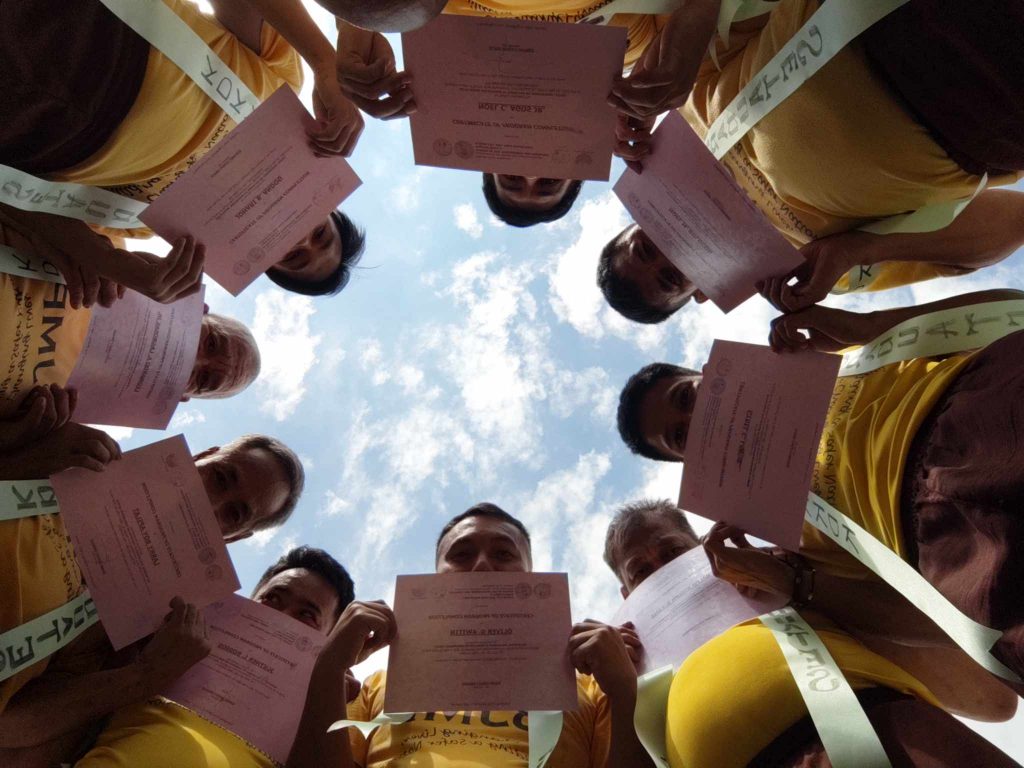TWELVE individuals at the Iligan City Jail-Male Dormitory (ICJMD) have shown incredible tenacity and resolve by overcoming the obstacles and graduating from the Katatagan, Kalusugan at Damayan ng Komunidad program, which is intended for persons deprived of liberty (KKDK-PDL).
These PDLS have effectively finished the drug rehabilitation program, despite the difficulties of incarceration, which is a critical step in their path to recovery and reintegration into society.
The graduation ceremony, which took place inside the ICJMD, served as a moving reminder of the transformational potential of support and education. The graduates’ accomplishments were celebrated by family members, penology officers, and program facilitators, who praised the graduates’ dedication to self-improvement and constructive development.
The KKDK is a community-based drug recovery program for users at moderate risk. Drug offenders who signed into a plea-bargaining agreement and were mandated by the court to participate in a community-based drug rehabilitation process are the ones who go through it.
On the other hand, the KKDK-PDL is the jail-based counterpart of the program run by trained penology officers with the goal of giving PDLs the resources and abilities they need to live successful lives after being released from jail.
PDL charged with illegal drugs can indeed avail of the KKDK (or the KKDK-PDL) program as an alternative to traditional community-based rehab.
“We are offering treatment options to them even while they are being held in custody,” KKDK facilitator JO2 Walter W. Mainit Jr stated. “We want to maximize their time spent with us so that they are transformed into new people when they reunite with their families and communities.”
The program consists of 24 modules and covers various aspects such as substance use dependence symptoms, life skills, and psychological well-being. Participants are engaged in lectures and build recovery and life skills to enable positive change. The program recognizes the importance of family support. Family members also participate in seminar modules to better understand and support their recovering loved ones.
Speaking at the ceremony, city jail warden JCI Carlo F. Obrique highlighted the value of rehabilitation in the facility while expressing his pride in the graduates.
“Today, we celebrate not only the program completion of these individuals but also their resilience and determination to turn their lives around,” he said. “Our goal is to ensure that every PDL who walks through these walls has the opportunity to rebuild their lives and contribute positively to society.”
Among the graduates was PDL Arjay, who spoke passionately about his journey towards redemption. “For years, I allowed myself to be consumed by anger and despair,” he stated. “But through this program, I’ve discovered a newfound sense of purpose and hope. I am determined to make the most of this second chance and become a better person for myself and my loved ones.”
The graduation ceremony served as a beacon of hope for the graduates and the entire community. It underscored the importance of rehabilitation and support in breaking the cycle of crime and fostering a culture of second chances. As these twelve individuals embark on the next chapter of their lives, they do so with the knowledge that they can overcome any obstacle that stands in their way.

